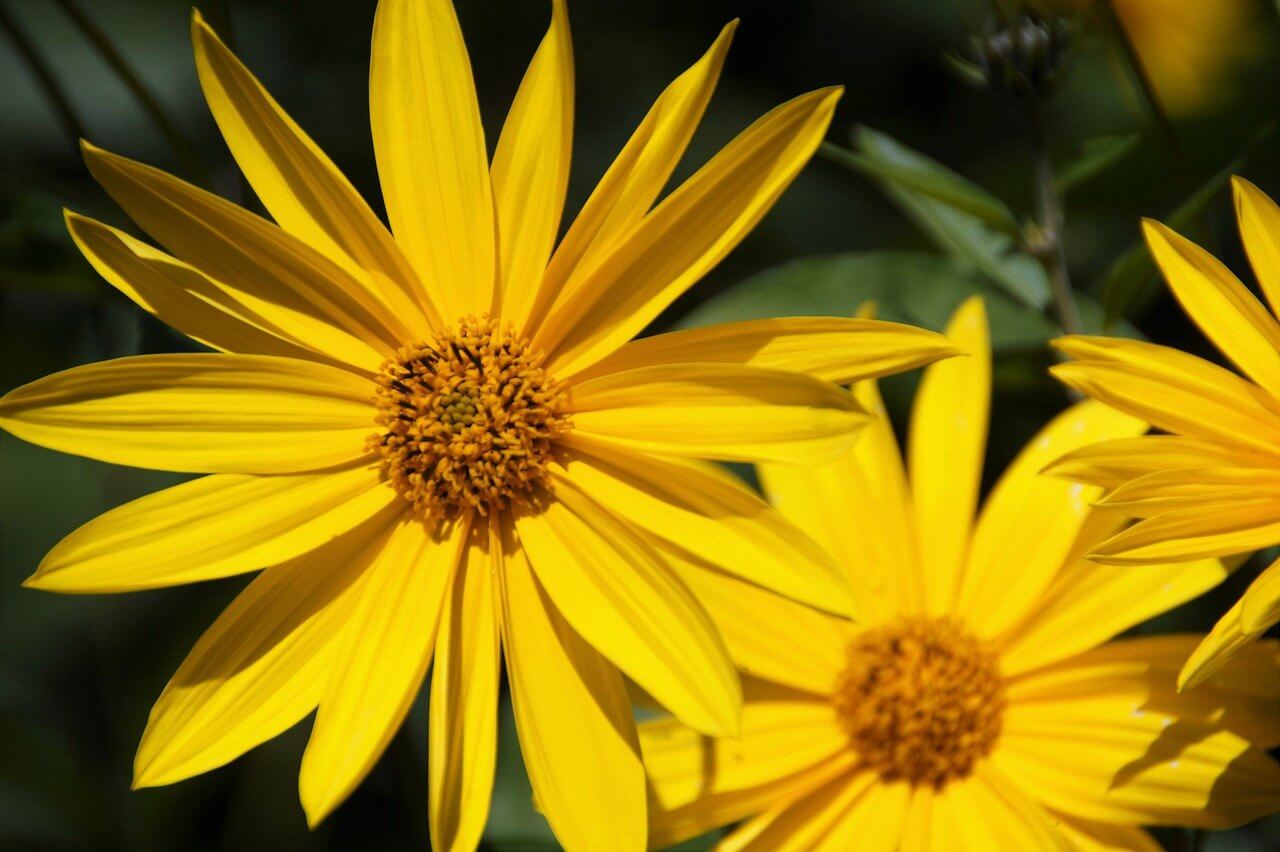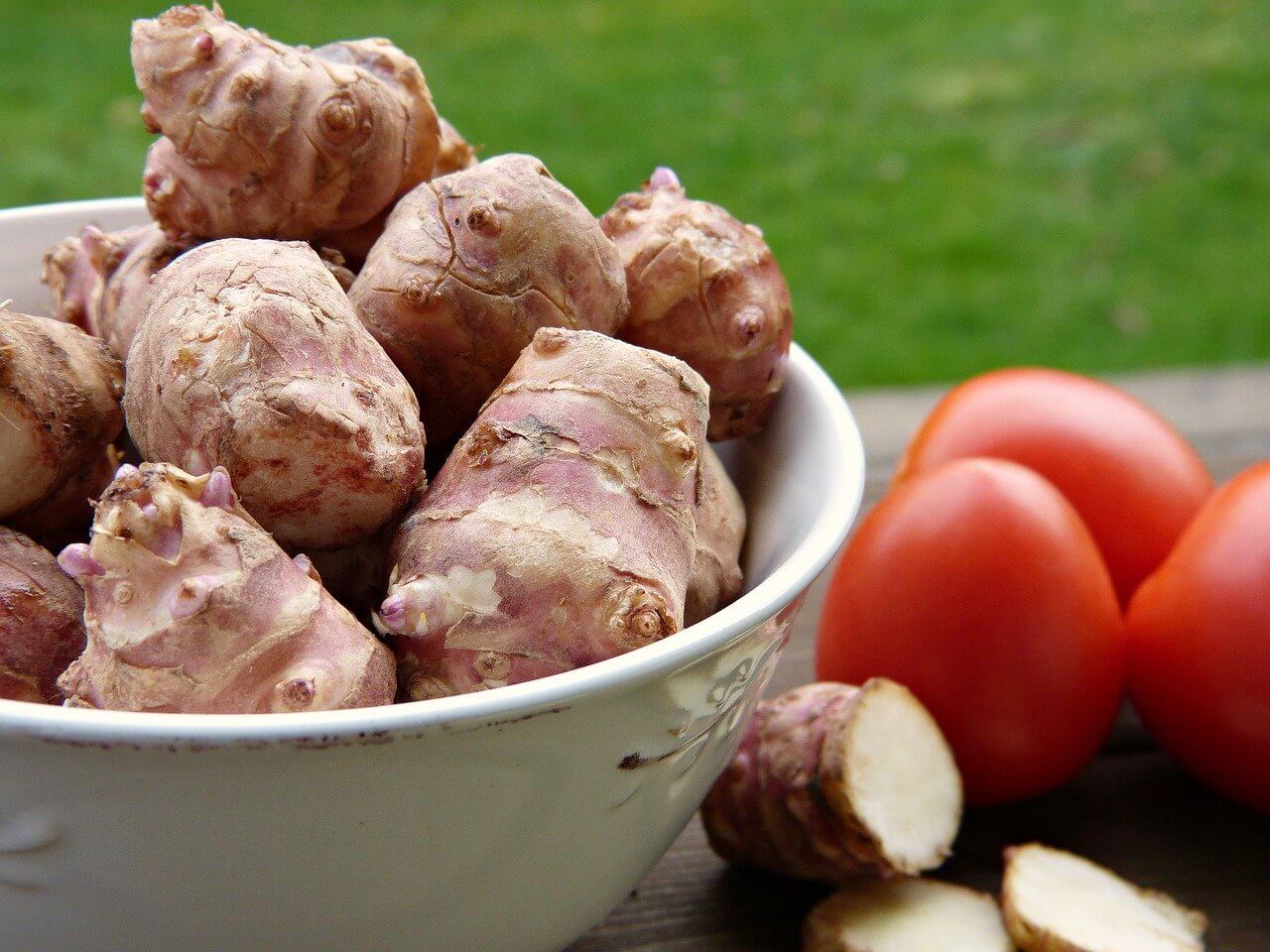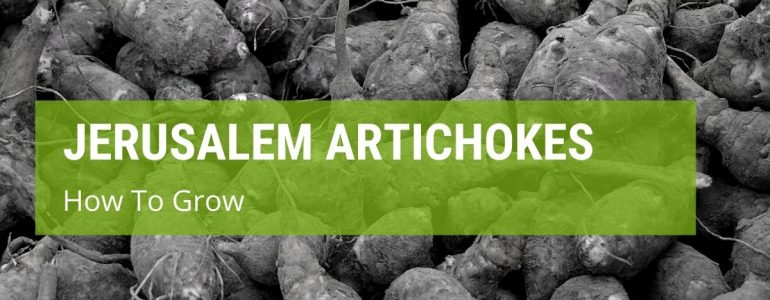Jerusalem artichokes are one of those “love it or hate it” vegetables. Many people love them for their delicate flavour, their versatility, the health benefits, and the ease of growing them. Other people loathe them because of their taste, their sprawling growth – and the fact that they are very hard to get rid of in the veggie patch!
However you feel about these knobbly tubers, it is always good to get an overview of the veg in question and then you can decide whether you want to grow it for yourself.
Today, we are looking at how to grow Jerusalem artichokes – and how to do this in the best way possible, so that you maximise the flavour on your plate and the enjoyment of your garden. Read on to learn more on when to plant, how to plant, when to harvest, etc.
Why grow Jerusalem Artichokes

1. They are tasty
The distinctive taste of Jerusalem artichoke is delicate yet unmistakeable, and it lends itself very well to other flavours.
2. They are versatile
Whether you like a soup, a stew, a gratin – or just about any other type of dish you can make with a root vegetable, you can add Jerusalem artichoke to your dish.
3. They are healthy
Along with the high levels of fibre, these knobbly little beauties also contain large amounts of Potassium and Iron, and they are low in calories. What’s not to love?
4. They are easy to grow
You don’t have to make much effort to fill a veg patch with Jerusalem artichokes; they grow well and flourish in most conditions, and produce large harvests.
5. They grow over winter
In the depths of the cold months, when nothing much else is coming up, you can still enjoy your harvest of Jerusalem artichoke.
How to grow Jerusalem Artichokes

This is a very forgiving plant, that can be grow in a variety of different soils and conditions, and it will still produce well.
The best way to grow them is from tubers (growing from seeds is not recommended, as it is much more difficult – and finding the seeds will also be a real struggle!)
- Plant the tubers into well prepared, weed free soil, at about 4-6 inches deep. You can plant them in a garden, at an allotment, or in grow bags or large tubs.
- When the stems reach 12 inches tall, draw soil up around the bases to keep them stable as they grow. If the stems reach over 5 feet tall, you should trim them so they don’t get damaged and broken by the wind.
- They don’t need a lot of water, but if the weather is very dry for a prolonged period, then your artichokes will benefit from a drink.
- In the autumn, when the leaves start to turn yellow, prune them to about 3 inches above the ground. You can leave the prunings around the plant, to keep the soil warm and make lifting the tubers easier.
- You can harvest your artichokes from late autumn; they will be absolutely fine left in the ground for months at a time, so you only need to take what you want to use.
- Lift the roots carefully with a fork, loosening the soil around them until they can be removed.
This video is a great explanation on how to grow and harvest Jerusalem artichokes:
If you want to keep your Jerusalem artichokes from taking over your whole garden, planting them in large pots is a good idea, so they won’t be able to spread.
This guy shows us some great benefits of planting these vegetables in containers:
Common pests
1. Slugs and snails
The bane of any gardener’s life, absolutely love baby artichokes. You’ll notice chewed leaves, and a trail of silvery slime around the plants.
You can combat theses pests using a variety of environmentally friendly methods such as egg shell, sawdust, copper tape and beer traps – or you can go down the slug pellet route, but always make sure the type you buy is safe for wildlife and the environment.
2. Sclerotina
It is a fungal disease that attacks Jerusalem artichokes, and unfortunately there is no cure. If you notice your plants rotting at the base and developing white fluffy mould, you need to immediately destroy these plants, to prevent the disease entering the soil. Do not compost the affected plants.
Dos and don’ts
- Don’t overwater your Jerusalem artichokes. Too much water, or growing in waterlogged soil, can make the tubers rot.
- Do make sure your artichokes have enough space. These are big plants that need a lot of growing room, and they won’t like to be too crowded.
- Don’t leave any tubers in the ground once you have harvested. These tenacious little beauties will come back year after year, from just one forgotten tuber.
- Do cook them well – Jerusalem artichokes contain a carbohydrate that can cause wind if not broken down by the cooking process.
Final words
Growing Jerusalem artichokes is easier than a lot of other vegetables, and they will reward you with large harvests that can improve your meals – and your health – throughout the year.
If you would like to learn how to store them properly, click here. If you want to know how to peel them, check this guide.





